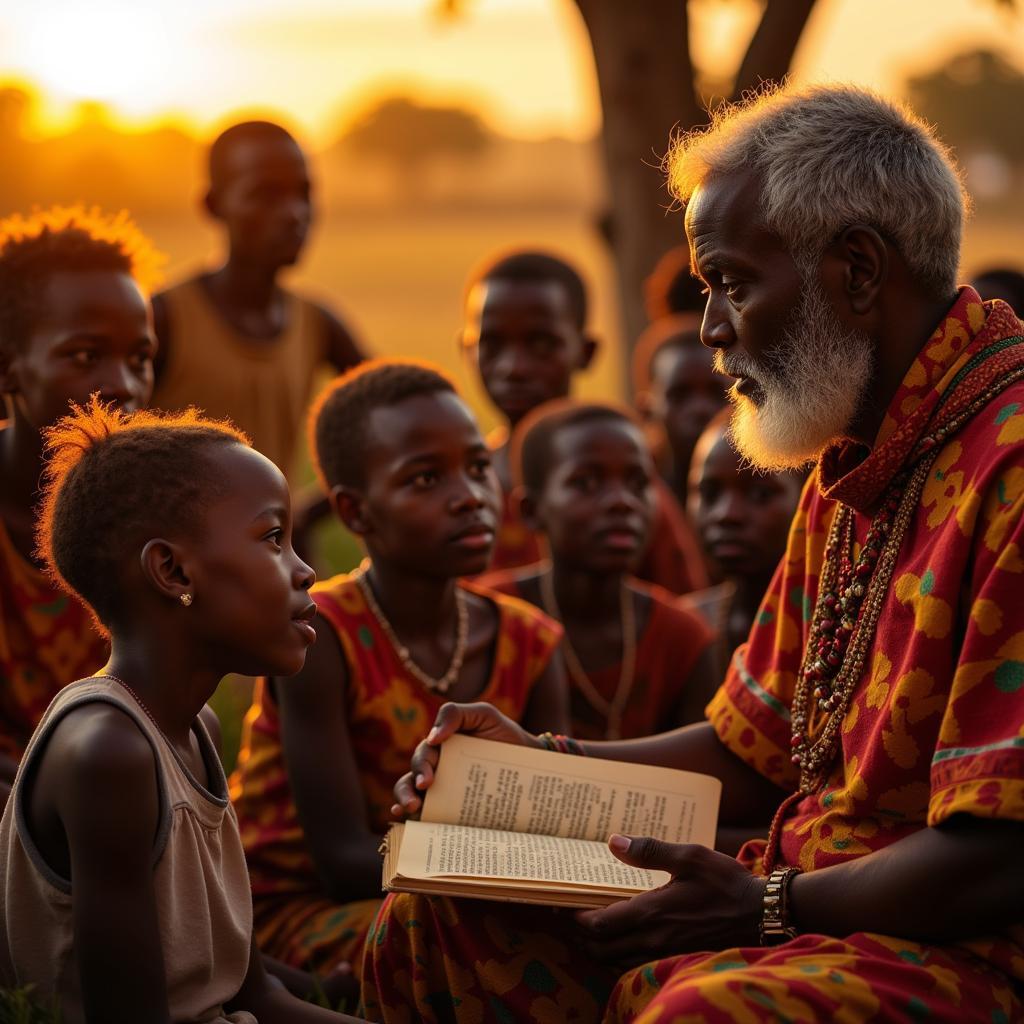The Soulful Story of African American Jazz Music
African American Jazz Music is a powerful and influential genre that has shaped the landscape of music globally. Born from the heart of the African American experience, it reflects both the struggles and triumphs of a community. This genre isn’t just about music; it’s a story, a conversation, and a testament to the enduring human spirit.
From Blues to Bebop: Tracing the Roots of African American Jazz
Jazz, deeply rooted in the rich musical traditions of African Americans, emerged in the late 19th and early 20th centuries in New Orleans. It drew upon various influences, including blues, ragtime, and spirituals. Blues, with its raw emotion and melancholic melodies, laid the foundation for jazz’s improvisational spirit. Ragtime provided a rhythmic framework, while spirituals contributed the call-and-response patterns that became a signature element of jazz. This unique blend of musical traditions created a fertile ground for the birth of a new American art form. The early forms of African American jazz showcased the collective improvisation of musicians, creating a spontaneous and dynamic musical dialogue.
The Golden Age of African American Jazz: Swing and Beyond
The 1930s and 1940s marked the Golden Age of Jazz, a period dominated by swing music. Big band leaders like Duke Ellington and Count Basie brought African American jazz to a wider audience, filling dance halls with their infectious rhythms and sophisticated arrangements. During this time, virtuoso soloists such as Louis Armstrong and Ella Fitzgerald became household names, their talents transcending racial barriers and solidifying jazz’s place in American popular culture. This era saw the rise of swing dancing, a phenomenon that further propelled jazz into the mainstream, turning it into the soundtrack of a generation. African American jazz music was no longer confined to the margins; it was at the center of American cultural life.
Innovators and Icons: Shaping the Sound of African American Jazz Music
Throughout its history, African American jazz has been driven by constant innovation. The bebop era of the 1940s and 50s, led by pioneers like Charlie Parker and Dizzy Gillespie, revolutionized the genre with its complex harmonies and rapid-fire improvisations. Later, musicians like John Coltrane and Miles Davis continued to push the boundaries of jazz, exploring modal jazz, free jazz, and fusion. These artists not only redefined the sound of jazz but also used their music as a platform for social and political commentary, reflecting the changing times and the ongoing struggle for civil rights. They weren’t just musicians; they were cultural icons, their music echoing the hopes and aspirations of a community.
What is the significance of African American jazz music?
African American jazz music isn’t merely entertainment; it is a powerful expression of cultural identity, resilience, and creativity. It tells the story of a people, their struggles, and their triumphs.
How did slavery influence African American jazz music?
The legacy of slavery profoundly shaped African American jazz, influencing its rhythms, melodies, and improvisational style. Spirituals, coded songs that expressed hope and resistance, played a crucial role in shaping the genre’s emotional depth.
The Legacy and Continued Evolution of African American Jazz
African American jazz continues to evolve, inspiring new generations of musicians and captivating audiences worldwide. From its humble beginnings in New Orleans to its global presence today, African American jazz music remains a testament to the power of creativity, resilience, and the enduring human spirit. Its influence can be heard in various musical genres, from hip-hop and R&B to contemporary classical music. Jazz festivals, educational programs, and cultural institutions around the world celebrate and preserve this rich musical heritage, ensuring that the legacy of African American jazz lives on. You can explore more about African American jazz artists and the broader context of African Americans in history. This rich history has inspired other creative expressions, such as those found at African American arts festivals. The African American cultural complex serves as a valuable resource to delve deeper into these traditions. For a different cultural perspective, consider the history and significance of the African American mustache.
African American jazz music, a genre born from struggle and resilience, has become a global phenomenon. From its roots in blues and ragtime to the innovative sounds of bebop and beyond, this music tells a story of creativity and cultural identity. We encourage you to explore this rich musical heritage further and discover the enduring power of African American jazz.
FAQ
- What are some key characteristics of African American jazz music? Improvisation, syncopation, swing rhythm, and blue notes are key elements.
- Who are some influential African American jazz musicians? Louis Armstrong, Duke Ellington, Ella Fitzgerald, Charlie Parker, Miles Davis, and John Coltrane are just a few.
- Where did African American jazz music originate? New Orleans is considered the birthplace of jazz.
- How has African American jazz music impacted other genres? Its influence can be heard in R&B, hip-hop, and even classical music.
- What is the significance of African American jazz music? It represents a powerful form of cultural expression and artistic innovation.
- Where can I learn more about African American jazz music? Numerous books, documentaries, and online resources are available.
- Are there any modern African American jazz musicians I should check out? Absolutely! The genre continues to evolve with many talented contemporary artists.
Need more help? Contact us! Call: +255768904061, Email: [email protected] or visit us at Mbarali DC Mawindi, Kangaga, Tanzania. We have a 24/7 customer service team.


